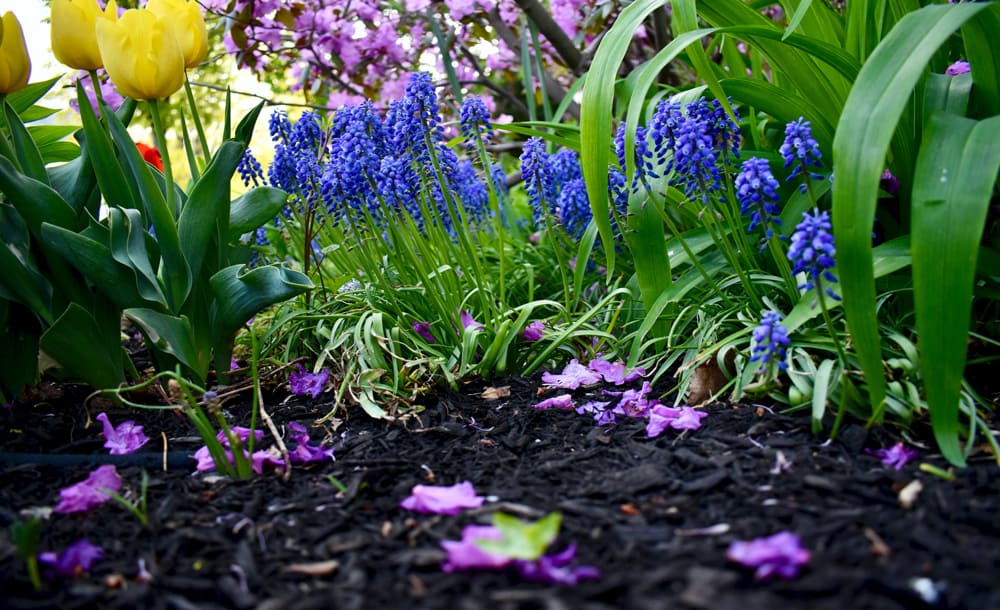Applying compost and mulch to landscapes can reduce the amount of water needed to maintain grass, plants, flowers, vegetables, shrubs and trees according to Agromin, a California-based company that produces organic soil products from locally collected green waste.
“Compost and mulch are well known to improve the health of the soil and structure of plants,” says Bill Camarillo, Agromin’s CEO, “but their water-saving advantages are just as important, especially during severe drought.”
Organic compost is a mixture of yard trimmings and food scraps that naturally decompose when microorganisms break down the material. Mixing compost into the soil reduces soil density, improves the soil’s biological make-up and introduces beneficial microorganisms. Compost acts like a sponge, increasing the soil’s water-holding capacity and enabling water to soak further into the soil to a plant’s root system.
Organic mulch is typically made of shredded and chipped non-processed wood. A 1” to 2” layer of mulch placed on top of soil holds in water, keeps the soil cool and reduces evaporation. Mulch will eventually break down into the soil, adding nutrients. Mulch also suppresses weeds.
How much water can be saved using compost and mulch? Compost can hold 20 times its weight in water. A study by soil scientists found that for every 1% of organic matter content, the soil can hold 16,500 gallons of plant-available water per acre of soil down to one foot deep
“With water restrictions allowing residents to water only one or two days per week, extending every drop of water is critical,” says Camarillo. “Adding compost and mulch to your landscape can reduce water frequency while keeping landscapes healthy.”
For more about compost and mulch, go to www.Agromin.com.
About Agromin
Since 1972, Agromin has been manufacturing earth-friendly soil products for farmers, government entities, landscapers and gardeners. Headquartered in Oxnard, California, Agromin is the organics recycler for over 200 California communities, making it the largest organics recycler in the state. Agromin receives over 1 million tons of organic material each year and then uses a safe, natural and sustainable process to transform the material into more than 300 soil products for landscape, agriculture, consumer and energy markets. The results are more vigorous and healthier plants and gardens, and on the conservation side, the opportunity to close the recycling loop, allowing more room in landfills and reducing greenhouse gas emissions. Agromin is a U.S. Composting Council Composter of the Year recipient.

